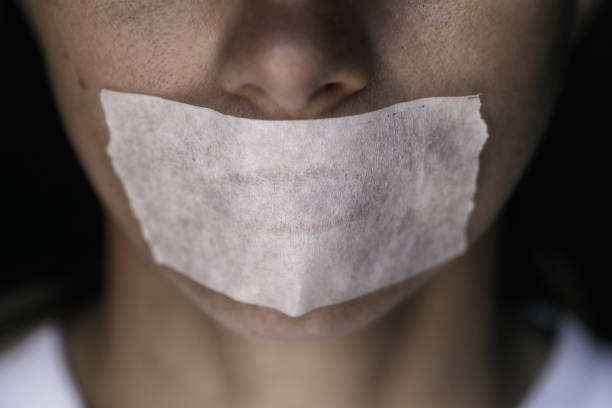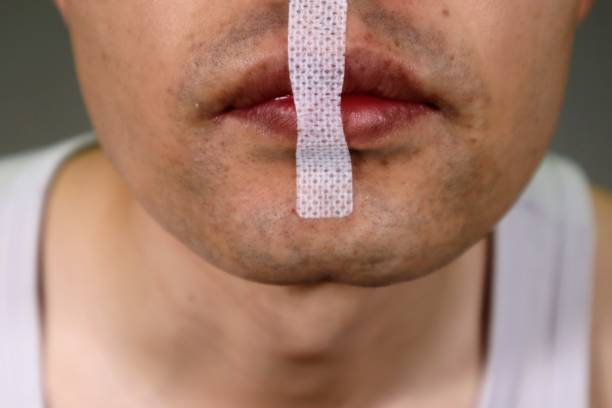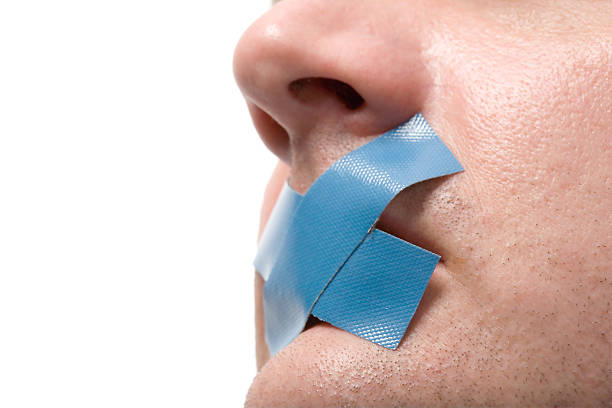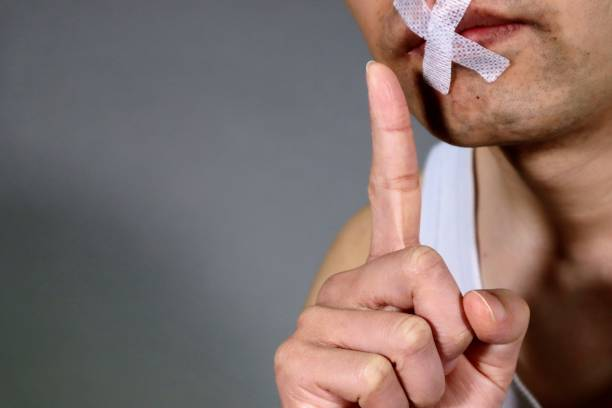Wellness
Is Mouth Taping At Night Dangerous
Have you ever heard of night time mouth taping? It’s a popular practice to place a little piece of medical tape across one’s lips while sleeping. Mouth taping supporters claim that it can help reduce snoring, improve breathing, and improve sleep quality. Is this, however, a risky practice?
In this article, we shall investigate the topic, “Is nighttime mouth taping dangerous?” We will investigate the benefits and potential hazards of this practice using scientific research.
While some swear by mouth tape as a successful treatment for snoring and breathing issues, others are concerned about its safety. Critics claim that it interferes with natural breathing patterns, increases the danger of asphyxia, and causes dry mouth and throat.
Join us as we separate fact from fiction and examine the benefits and drawbacks of nighttime mouth taping. By the end of this article, you’ll know whether mouth taping is a safe and viable solution for enhancing your sleep.

What is Mouth Taping at Night?
Mouth taping at night is the practice of applying a small piece of medical tape over one’s lips before retiring to bed. The tape is often permeable and hypoallergenic, allowing enough airflow while keeping the mouth from opening during sleeping.
Mouth taping supporters claim that it can assist increase nasal airflow, minimize snoring, and improve overall sleep quality. They claim that by closing the lips, air is driven via the nasal passages, resulting in higher oxygenation, enhanced nitric oxide generation, and better sleep patterns.
Benefits of Mouth Taping at Night
Mouth taping at night proponents mention various potential benefits of this procedure. These advantages include:
- Reduced Snoring: Snoring is frequently induced by the vibration of soft tissues in the throat and mouth. Airflow is directed through the nasal passages while the mouth is closed, lowering the possibility of snoring.
- Breathing Improvement: Nasal breathing offers various advantages over mouth breathing. It aids in the filtering and warming of the air, increases oxygen intake, and promotes better lung function. Mouth taping promotes nasal breathing, which leads to better overall breathing patterns.
- Improved Sleep Quality: Restorative sleep requires proper breathing during sleep. Mouth taping may assist improve sleep quality by encouraging nasal breathing and minimizing snoring, resulting in enhanced energy and overall well-being.
While these advantages appear to be appealing, it is critical to consider the dangers and side effects of mouth taping.
Common Misconceptions about Mouth Taping at Night
Before getting into the safety concerns regarding nighttime mouth taping, let’s clear up some prevalent misconceptions about the technique.
- Suffocation: One of the most serious concerns stated by mouth taping opponents is the risk of suffocation. It should be noted, however, that the tape used for mouth taping is often permeable and provides for appropriate airflow. When used correctly, mouth taping should not cause asphyxia.
- Dry Mouth and Throat: Another myth is that mouth taping causes dry mouth and throat. While some people may feel temporary dryness during the adjustment period, appropriate hydration and the use of breathable tape can help alleviate this problem.
- Impaired Breathing: Some people complain that mouth taping interferes with natural breathing rhythms and causes discomfort. Proponents of mouth taping, on the other hand, argue that it fosters appropriate nasal breathing, which can enhance overall respiratory performance.
Now that we’ve dispelled these myths, let’s dig deeper into the safety of nighttime mouth taping.

Is Mouth Taping at Night Safe?
The safety of nighttime mouth taping is heavily dependent on individual circumstances and good technique. While there is limited scientific study on mouth taping, anecdotal data suggests that it is a safe technique for many people.
However, before performing mouth taping, some variables must be considered. These elements are as follows:
- Nasal Congestion: Mouth taping may not be appropriate if you suffer from persistent nasal congestion or have a deviated septum. In such circumstances, seek the advice of a healthcare practitioner before attempting mouth taping.
- Allergies: If you are allergic to the adhesive used in medical tape, it is critical to choose a hypoallergenic tape that reduces the risk of skin irritation.
- Sleep Apnea: Individuals suffering from sleep apnea should seek professional advice before attempting mouth taping. Sleep apnea is a significant medical problem that necessitates prompt diagnosis and treatment.
While mouth taping may be safe for many people, it is always a good idea to contact with a healthcare practitioner first, especially if you have any underlying health concerns.
Potential Risks and Side Effects of Mouth Taping at Night
While supporters of mouth taping argue for its safety and benefits, it is critical to understand the risks and side effects of this treatment.
- Discomfort: Some people may find lip taping painful, particularly during the transition period. The sensation of a closed mouth or the adhesive on the skin may cause this discomfort. Experimenting with different tapes or modifying your taping technique can help relieve pain.
- Skin Irritation: Some people may develop skin irritation or allergy to the adhesive used in medical tape. To reduce the risk of skin irritation, use hypoallergenic and breathable tapes created specifically for mouth taping.
- Dry Mouth: Although only brief, mouth taping can cause dryness in the mouth and throat. Staying hydrated during the day, as well as wearing breathable tape, can help to alleviate this adverse effect.
It is crucial to note that the risks and side effects of mouth taping are usually minor and transient. However, if you encounter prolonged discomfort or ill consequences, quit the practice and seek medical advice.

How to Safely Tape Your Mouth at Night
It is critical to use the proper method while mouth taping at night to ensure safety. Here are some tips for safely taping your mouth:
- Choose the Right Tape: Select a medical tape that is breathable, hypoallergenic, and specifically made for mouth taping. Tapes that are overly strong or sticky should be avoided since they can cause discomfort or skin irritation.
- Prepare the Skin: Make sure your lips and surrounding area are clean and dry before putting the tape. This will aid tape adhesion and lessen the chance of skin irritation.
- Apply the Tape: Cut a little piece of tape, about 1-2 inches long, and put it horizontally over your lips. Make sure the tape is secure but not too tight. It should be simple to remove if necessary.
- Practice: If you’re new to lip taping, do it during the day to get used to the feeling. This will allow you to tape more comfortably at night.
Alternatives to Mouth Taping at Night
If you are apprehensive or uncomfortable with mouth taping, there are alternate treatments that might assist improve your sleep quality and eliminate snoring. Consider the following alternatives:
- Nasal Strips: Nasal strips are adhesive strips that are applied on the outside of the nose to help enlarge the nasal passages, allowing for better airflow.
- Nasal Dilators: Nasal dilators are little devices that are put into the nostrils during sleep to keep them open and promote nasal breathing.
- Positional Therapy: For people who typically snore when sleeping on their backs, positional therapy is employing equipment or procedures to encourage side sleeping, hence reducing snoring.
- Lifestyle Modifications: Modifications to one’s lifestyle, such as weight management, regular exercise, and abstaining from alcohol and sedatives before bedtime, can also help reduce snoring and enhance sleep quality.
Remember that it is critical to contact with a healthcare practitioner to find the best option for your individual circumstances.

Tips for Successful Mouth Taping at Night
If you opt to try lip taping at night, keep the following points in mind for a positive experience:
- Begin gradually: Tape your mouth for brief lengths of time during the day to get used to the sensation before attempting overnight taping.
- Hydrate: Drink plenty of water throughout the day to stay hydrated and avoid the chance of dry mouth during mouth taping.
- Monitor Your Sleep: Keep a close eye on your sleep quality and any changes in your breathing patterns. If you endure prolonged discomfort or detect negative effects, stop using mouth tape and seek expert help.
- Be Mindful of Allergies: If you have a history of allergies or skin sensitivities, make sure the tape you purchase is hypoallergenic and appropriate for your needs.
By following these guidelines, you can improve your mouth taping experience and maximize its potential benefits.
Frequently Asked Questions about Mouth Taping at Night
- Is mouth taping appropriate for everyone? Mouth taping may not be appropriate for people who suffer from persistent nasal congestion or sleep apnea. Consult with a healthcare professional to see if it’s right for you.
- How long does it take to become comfortable with mouth taping? The adjustment period varies depending on the individual. Some people may adapt rapidly, while others may need more time to adjust to the experience.
- Is it possible to breathe through my nose if my mouth is taped? Yes, mouth taping is intended to promote nasal breathing. The tape should enable enough air to travel through the nostrils.
- Is mouth taping effective for snoring? Mouth taping may help to minimize snoring by encouraging nasal ventilation and inhibiting mouth opening during sleeping.
- Is mouth taping a permanent solution? Mouth taping can be a long-term treatment for people who find it beneficial and have no negative side effects. However, it is critical to check your sleep quality and, if necessary, talk with a healthcare expert.
Conclusion
I’ve found that mouth taping at night can be an effective practice for reducing snoring, improving breathing, and enhancing overall sleep quality. Implementing it correctly and considering individual circumstances, it seems to be a safe and viable option.
Though there are potential risks and side effects associated with mouth taping, I’ve observed that they are generally mild and temporary. By adhering to the recommended techniques, monitoring my sleep quality, and seeking professional advice when needed, I’ve been able to make an informed decision about whether mouth taping is the right choice for me.
I understand that personal experiences may vary, and I emphasize the importance of prioritizing comfort and safety throughout this process.


